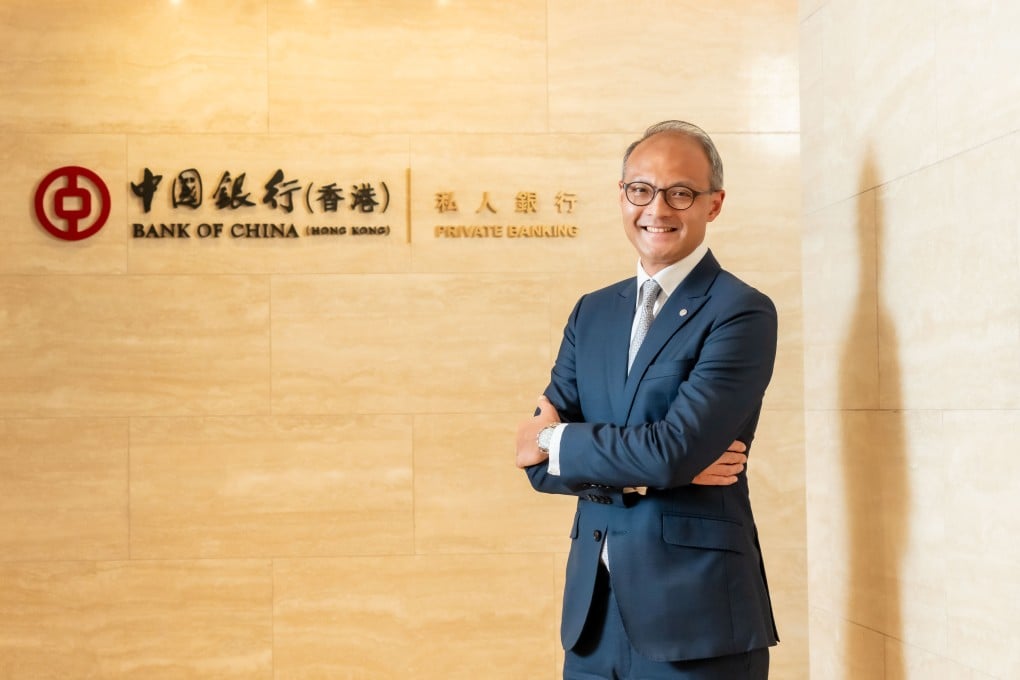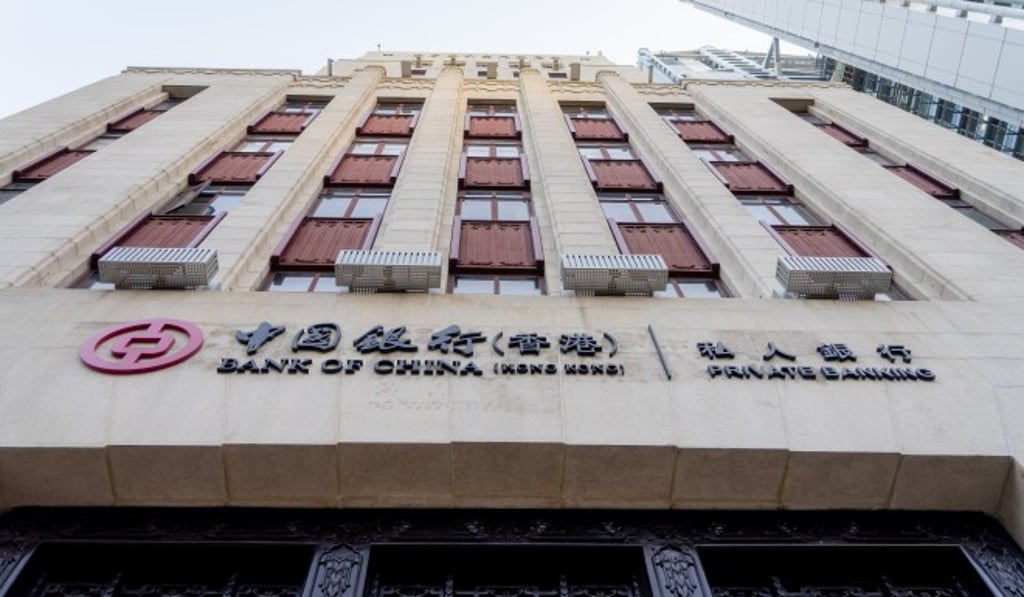Stability in Motion: Navigate through uncertainty with BOCHK Private Banking
To protect and grow your wealth in turbulent times, you need a trusted partner and advisor guiding your decisions. With Bank of China (Hong Kong) Private Banking (BOCHK Private Banking), you can rest assured that all aspects of your portfolio will be well taken care of.

[The content of this article has been produced by our advertising partner.]
Just when the world pinned its hopes on an 'endemic' recovery earlier this year, the world was battered by a series of crises, exacerbating inflationary pressures and sending global stock markets to new lows. In this new age of turbulence, it is important for high-net-worth individuals and wealthy families to have a trusted partner and advisor on their side who can help them manage risks and achieve the best possible returns.
Indeed, there are opportunities in a volatile market as long as one sees, says Edmund Kam, Managing Director and Head of Private Banking at BOCHK. "For now, the outlook remains uncertain due to a looming rise in interest rates globally. Clients should take precautions to protect their assets by deleveraging or reducing their debts," he says.
The BOCHK Private Banking team advises its high-net-worth clients on how to diversify their investments. The bank takes into account the client's risk appetite, investment experience, and objectives when recommending different portfolio allocations based on these dimensions.
Being passive while being aggressive
The bank adopts a portfolio-based approach to asset allocation based on the core-satellite investment framework, which is designed to help clients achieve their strategic goals while safeguarding their assets under different circumstances simultaneously.
The core of the portfolio is made up of passive exposure to traditional asset classes, mainly equities and fixed income, while satellite investments are more opportunistic and designed to seek specific growth outcomes, sometimes at relatively higher levels of risk. This strategy helps minimise costs, tax liability and volatility, while providing an opportunity to outperform the broad stock market.
"We employ a core-satellite strategy to personalise the portfolio for each of our clients, helping them achieve long-term wealth management goals. Our approach is disciplined and intuitive, providing the greatest possible potential in a cost-effective way," he says.
The bank also manages and closely monitors changes in the market and any external factors to capture opportunities strategically whenever they arise. Portfolio rebalancing is carried out in a timely manner to optimise risk and return of the portfolio, while maintaining overall liquidity is equally important.” This strategy is what Kam calls Tactical Asset Allocation (TAA).
Banking on the Greater Bay Area
The Greater Bay Area is one of the most ambitious plans to link multiple cities across a province to create one of the world's largest metropolises. The GBA presents tremendous opportunities for the banking sector, ranging from currency exchange and wealth management solutions to cross-border renminbi products and services.
To take advantage of these opportunities, Kam says the bank has three main areas of focus: building talent pools, developing products, and improving infrastructure.
BOCHK Private Banking has expanded its offerings of products and solutions to ensure that clients from across the GBA have a variety of different options to meet their financial and investment needs. The bank is also focusing its efforts on developing and enhancing its digital-based services to meet the needs of younger entrepreneurs across the region.
A magnet for the new rich
In recent years, many private enterprises from the mainland have gone public overseas, creating wealth for their major shareholders and management. Many of them are potential private banking clients, and there will be growing demand for wealth management services from them. As one of the world's most competitive economies and an important connection point for mainland businesses to enter international markets, Hong Kong is best placed to serve their wealth management needs.
In the latest 2022 Policy Address announced by the Chief Executive of the Hong Kong SAR Government in October, it was mentioned that a new system will be established, and a series of new measures will be introduced to enhance development momentum and attract investment and talent.
Such measures include the establishment of the Office for Attracting Strategic Enterprises (OASES), led by the Financial Secretary, which offers special facilitation and one-stop services to attract strategic enterprises from the mainland and overseas. A Talents Service Unit led by the Chief Secretary for Administration will also be set up to formulate talent recruitment strategies.
Meanwhile, a Co-Investment Fund will be set up to attract enterprises to set up operations in Hong Kong and invest in their business. The Hong Kong Exchanges and Clearing Limited (HKEX) will revise the Main Board Listing Rules next year to facilitate fundraising of advanced technology enterprises that have yet to meet the profit and trading record requirements. It is also planning to revitalise GEM (formally known as the Growth Enterprise Market) to provide SMEs and start-ups with a more effective fundraising platform.
The introduction of these and other new measures will be a catalyst for innovation and entrepreneurship, bringing more opportunities for the Hong Kong private banking sector, says Kam.
ESG investing protects against downside risks
China has set a goal of reaching peak carbon emissions by 2030 and achieving net zero by 2060. It is believed that these goals can help create new investment opportunities, especially in the clean energy sector. There is also strong evidence that businesses that focus on environmental, social, and governance (ESG) are potentially better investments.
Nowadays, ESG-related investments are available in a variety of asset classes, including stocks, bonds, mutual funds, alternative investments and structured products. He suggests that investors include ESG-compliant assets in their portfolio to increase their odds of achieving their long-term financial goals while reducing downside risks.
